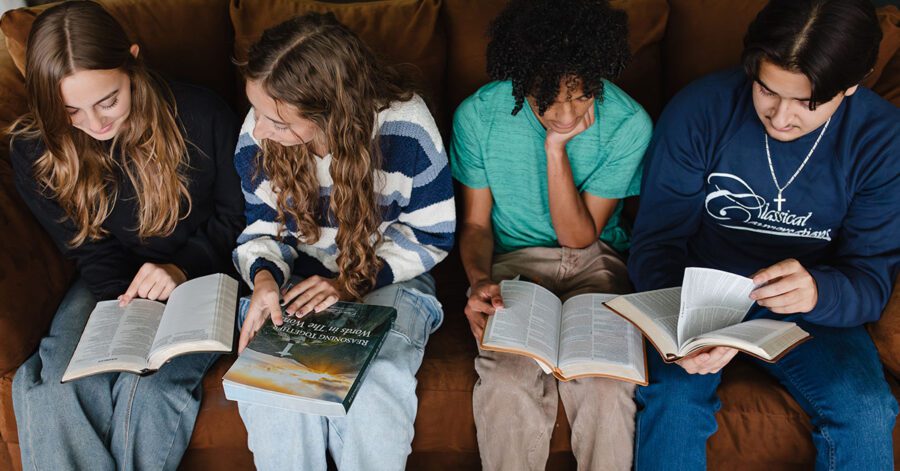I never thought I would find myself teaching my daughter to cheat. We spend our time as parents teaching wholesome lessons like kindness to siblings, respect of elders, and honesty in all things. What place could “cheating” have among those lesson plans? I have been contemplating this “lesson” for a couple of years, initially on my own behalf.
While reading a book by Andy Stanley, I was confronted with two truths; first, I read “…when you consider the limited number of hours in a day, there’s no way you can reach your full potential in all…areas.” This resonated with me as a wife, mother, homeschooler, CC leader, pastor’s wife, writer, friend, daughter…..I wanted to do my best in all my areas of responsibility; it was becoming clear, however, that doing my best in everything at the same time was not possible! This practical truth gave me the grace to become realistic in my expectations of myself; it was quite freeing. As I continued to read, I found this nugget: “When you cheat strategically you leverage your busyness for the sake of what’s most important.” Aha! The discovery of a way to juggle all my “plates” was intriguing to me, even if it was called “cheating”! I learned that choices would have to be made, and value judgments assessed if I was to successfully live and breathe and handle life within God’s economy. As I continue to refine this principle in my own life, I am eager to help others feel the freedom and balance it can bring. And that brings me to teaching my daughter to cheat.
The Challenge program, as many of you have discovered, is aptly named. Our students are challenged to stretch themselves as they grapple with big ideas, complex thoughts, tough assignments, and a somewhat daunting scope of material. The constant struggle to “get it all done” can blind a student (and parent/teacher) to the ultimate goal for us as classical Christian home schoolers: to know God and make Him known. Also easily overshadowed is “big picture thinking”; we may become so relentless in our pursuit of completed assignments that we neglect the thoughtful consideration of how all the “pieces” of curriculum fit together to make a unified, satisfying whole. How easy it is to miss the forest for the trees!
When a parent sees a student focused only on completing assignments without regard to understanding how the parts (the curriculum assignments) should illuminate the whole (the Truth), it is the parent’s job to help the student re-focus on what is important instead of what is merely urgent. The parent must give the permission for the student to “cheat” a bit; some assignments should be amended, shortened, or set aside, in order to focus on discussion for the purpose of integration and understanding. We as parents must help our students to see the true purpose of the education they are seeking: opening their eyes to close upon truth. This “strategic cheating” will help parents and students to remember and celebrate what is most important.




